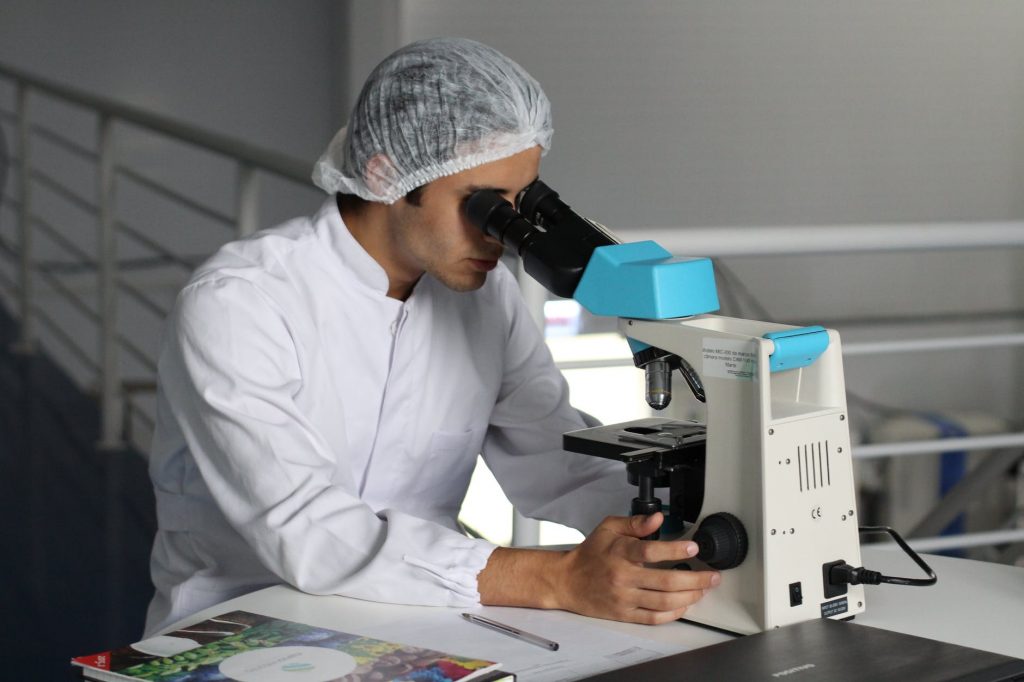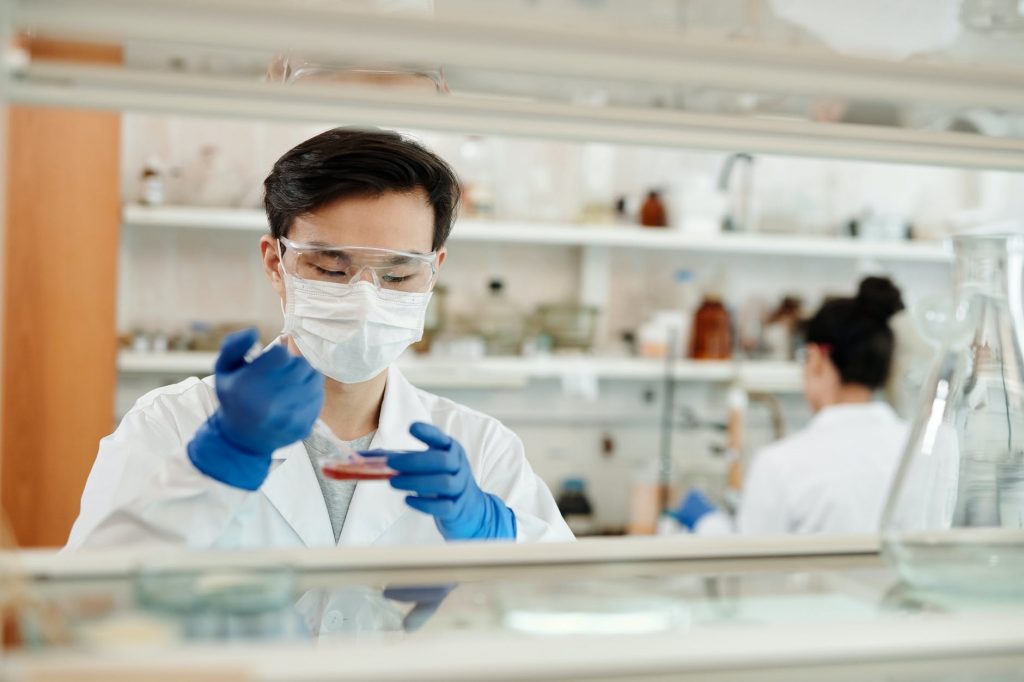This is a free essay sample available for all students. If you are looking for academic essays for sale on the topic “Why Are Lab Rules Important”, browse our private essay samples.
Introduction
We have all, at one point, found ourselves in the science lab for an experiment or a group project. We know that it’s a completely different atmosphere once you enter the laboratory because you are suddenly surrounded by fragile and expensive items.
Why are science lab rules important? Do we follow them to the letter? The author of this sample essay reminds us why we need to take extra care inside the laboratory.
Check out the rest of our website for sample essays on other topics. For our essay writing services, get in touch with us through this link.
A Reminder on The Importance of Lab Safety
Whether or not we are passionate about science, we have all had laboratory classes and spent some time there doing experiments or working on projects with our classmates. It is safe to say that we were all oriented by our teachers on the first day of class on the basic safety rules to follow while inside the area. Many of us follow just to avoid reprimanded, not fully understanding the implications of what it would cost to not follow the rules.

It goes without saying that following the safety precautions is for the health and safety of everyone in the room. Having sensitive and expensive laboratory safety equipment all around you means that if you are not extremely careful, there is a risk for an injury or accident to occur. Whether it’s wearing protection gear, disposable gloves, lab coats, safety goggles, or covered shoes, dutifully complying with lab safety rules is a personal responsibility you undertake for yourself and others.
Several things are at risk when you don’t follow instructions. First, your actual project or lab experiment might be compromised. Without the proper safety gear, you eliminate conducting your work in controlled conditions and increase the likelihood of cross-contamination. It would be hard to validate the results of your testing and experimenting because you don’t know what other variables came into play as a result of exposure.
Second, everyone’s safety is at stake. It’s not just about you getting hurt. One person’s mistake or refusal to follow can cost everyone’s health and well-being. If you decide to play mad scientist and are careless in handling chemicals without choosing to wear goggles, you may be at risk of getting physically hurt. Depending on the kind of chemicals you are working with, a mistake could trigger an explosion, affecting even those who happen to be around you.
Finally, you take away your teacher’s peace of mind. The rules are there to help minimize exposure to slightly hazardous elements. Without your cooperation, the lab is unable to become a safe environment for people to learn and practice. It would be difficult for your teacher to go and spend equal time with all the students. He or she would have to strictly supervise you or send you out, which would then affect the rest of your teammates.
As lab users, we need to conduct ourselves carefully for the protection of those around us. This means following lab safety rules and not just doing what we want inside the laboratory. When the teacher instructs us on the to-do and what not to do, it would be in everyone’s best interest if we listened attentively. Our lab experiments, other groups, and the instructor will thank us for it.
10 Safety Rules in A Science Lab

- Take every single instruction to heart: It is of utmost importance to pay attention to all the instructions the teacher gives at the start of the class before you start working on your projects. It is dangerous to go ahead and start without this, only to encounter situations after that may compromise everyone’s safety. Make sure that you also clarify and ask questions when there is something that is vague or difficult to understand.
- Master the whereabouts of the laboratory’s safety equipment: These exist to help you out if or when an unplanned incident happens. Once in a while, you should also come over and see if everything is in good working order.
- Wear all the necessary safety gear: In any laboratory, it is standard protocol to wear goggles and don lab coats, as well as covered shoes. These ensure that you don’t have skin contact with any hazardous fluids or materials and that no cross-contamination takes place.
- Leave your snacks and drinks outside the laboratory: There are so many potential scenarios that could be harmful to you and your classmates. You could touch your food with dirty hands or put on an unclean or unsterilized countertop. You might absent-mindedly reach for the test tube instead of your drink. You could even spill food on whatever you are working on.
- Never consume any of the chemicals: They are not for you to try or test out by tasting. If you need to remember which goes where to remember to put a label on the container so that you can easily go back to it.
- Don’t fool or play around with chemicals like a mad scientist: You may have seen some movies where the scientist just goes crazy with random experiments. Do not try this in your lab. This is a careless way of inviting toxic gas combinations, fires, or even breakage of equipment to occur.
- Practice proper waste disposal: Never leave a finished or unfinished experiment on the table just like that. You need to think of the other people who will use the equipment after you, or even what happens to the chemicals when left exposed for a long period of time.
- Be honest about glitches or mistakes: If something went wrong in your experiment, if you had contact with something unfamiliar, or if you lost a container of chemicals, it is best to report them to your teacher. Allow them to help you troubleshoot and resolve it.
- Don’t bring home any of your experiments: They are safest when stored properly in the laboratory. You put yourself and your family at risk of injuries if something were to happen with the chemicals at home.
- No matter what happens, do not use yourself as a guinea pig: It is extremely dangerous to test something that is still not proven to be safe on yourself.
FAQs
What is the Most Important Lab Safety Rule?
The most important principle that applies to all other rules would be to follow all instructions to the letter! It is easy to just follow the rules that are convenient to you, but all of them exist for everyone’s health and safety. These precautions are also very specific because they have been tailor-fit for the specific types of equipment and chemicals that are in the area. Do not try to adjust the rules to your like because this will put you and everyone else at risk of injury or poisoning. At this point, it is important to note that you can always ask your instructor questions if there is something that needs clarification.
What should You not do in a Lab?
You should never enter a lab just in your everyday clothes. The most important parts of your body should be covered – your eyes, hands, hair, and shoes. This helps minimize exposure to any toxic or dangerous fluids, even hot surfaces. Never play with open flames, even if you have done this outside the laboratory area. There are chemical fluids at play inside the lab that could cause an explosion. Never leave stains or keep your area unclean after use. Make sure that you dispose of the waste from your experiments before the next batch of students comes in. Finally, never eat or drink inside the lab. This compromises not only your well-being but also the integrity of your experiment.